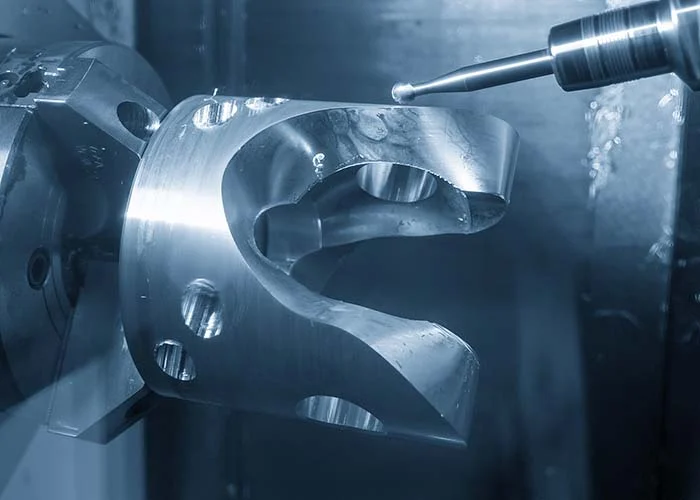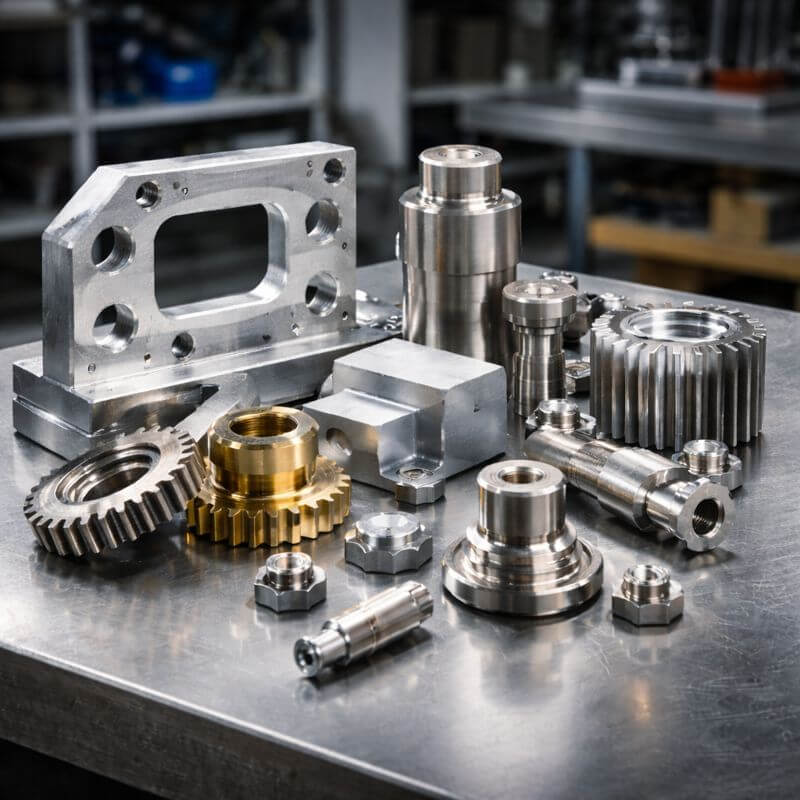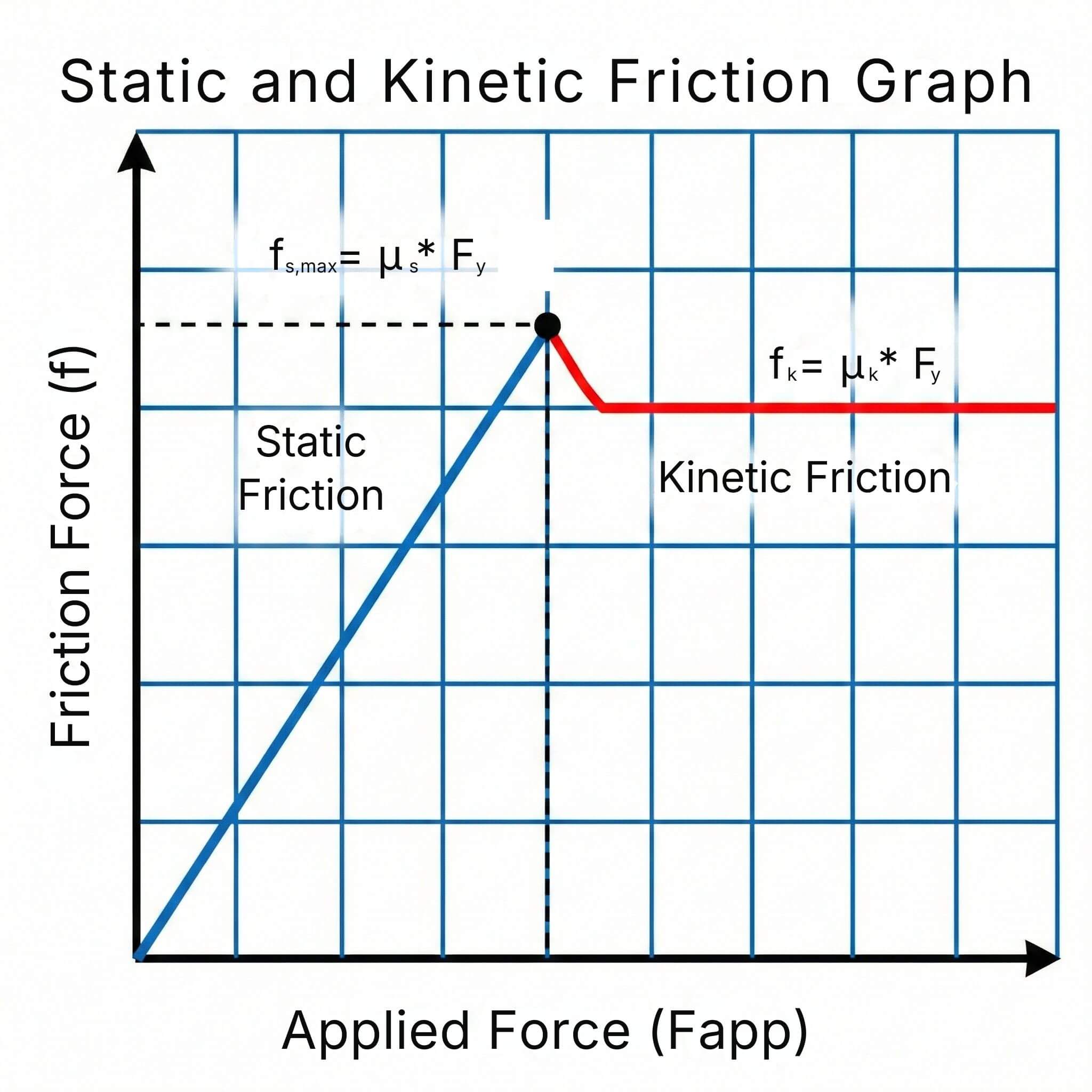4 min read
Uses of Metals: Types, Classifications and Applications
Metals are among the most important and widely used materials by humankind.From prehistory to Industry 4.0, they have supported technological...

The lathe is one of the oldest and most essential machine tools in engineering.
From the hand-operated lathes of thousands of years ago to today’s high-precision CNC models, this machine remains indispensable for producing metal and plastic components with cylindrical or rotational symmetry.
This guide explains clearly and comprehensively what a lathe is, what turning involves, how it works, which operations it enables and the industries in which it is used.
A lathe is a machine tool that works a part by rotating it while a cutting tool removes excess material.
The workpiece is clamped in the chuck and set in rotation; the tool, moving along one or more axes, shapes the final geometry.
It is the ideal machine for producing cylinders, cones, bushes, shafts, pins, nuts, threads and curved surfaces with very tight tolerances.
Turning is the machining process carried out on the lathe.
It is a chip-removal process in which:
Turning allows you to create:
external cylindrical surfaces
internal surfaces (boring)
tapers, chamfers and radii
grooves and recesses
internal and external threads
parting-off and end finishing
It is one of the most precise and repeatable processes in modern engineering and forms the basis of much of the metalworking industry.

The lathe is extremely versatile and enables many different operations:
✔ External turning
To create cylinders, tapers and curved surfaces.
✔ Internal turning (boring)
To produce accurate cavities, holes and seats.
✔ Threading
Internal or external threads (screws, studs, nuts).
✔ Parting-off
Separating and finishing ends.
✔ Chamfers and edge finishing
To remove sharp edges and improve appearance.
✔ Combined operations (advanced CNC lathes)
With driven tools, it is also possible to mill, drill and complete the component in a single setup.
Every lathe, from the simplest to the most advanced, includes several key elements:
Chuck → clamps and rotates the workpiece
Tailstock → supports long parts
Carriage → moves the tool along the axes
Tool turret → holds the tools
Bed → the supporting structure
Cutting tool → removes material

First threading lathe
There are various types, each designed for specific needs:
Centre lathe (manual)
The classic traditional lathe.
CNC lathe
Computer-controlled for high precision and series production.
Vertical lathe
Vertical spindle: ideal for very heavy or large-diameter parts.
Sliding-head (Swiss-type) lathes
Perfect for small precision parts and very long, slender components.
Multitasking lathes
Can also mill and drill thanks to powered tools.
A lathe can work a wide range of materials:
steel
stainless steel
aluminium
brass
copper
titanium
wood
composites
green ceramics
Because it offers:
precision
repeatability
operational versatility
production efficiency
excellent surface finish
It remains one of the most widely used machine tools in workshops and production lines.
Virtually everywhere:
general engineering
automotive and motorsport
aerospace
oil & gas
energy
medical
robotics
precision manufacturing
small metal parts
Any component with rotational symmetry is almost always produced on a lathe.
Modern CNC lathes offer:
full automation
micrometric precision
consistent quality
reduced waste
multitasking capability (milling + turning)
continuous production, even in series
They are essential for high-volume industrial production and complex parts.
The lathe and turning are fundamental pillars of precision engineering.
From artisan workshops to cutting-edge production departments, this technology enables the creation of accurate, functional and repeatable components.

4 min read
Metals are among the most important and widely used materials by humankind.From prehistory to Industry 4.0, they have supported technological...

2 min read
The coefficient of friction (μ) measures the resistance to sliding between two surfaces in contact. It is a key parameter in mechanical design...

3 min read
The CBAM regulation (Carbon Border Adjustment Mechanism) represents one of the key pillars of the European strategy for industrial decarbonisation...